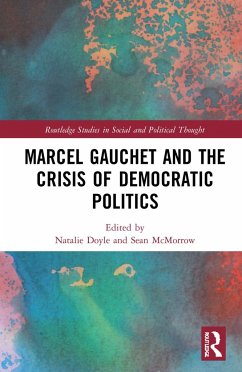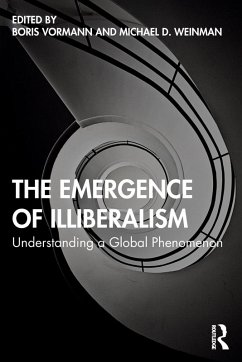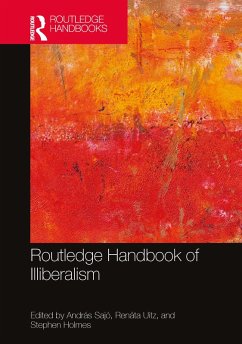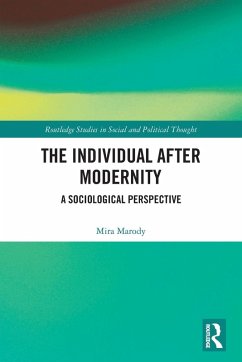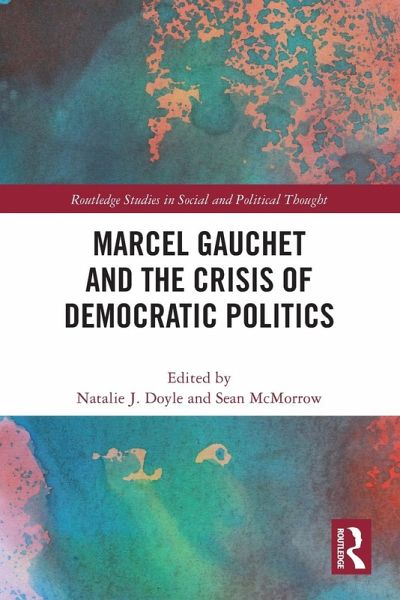
Marcel Gauchet and the Crisis of Democratic Politics
Versandkostenfrei!
Versandfertig in 6-10 Tagen
45,99 €
inkl. MwSt.

PAYBACK Punkte
23 °P sammeln!
This book presents, for the first time in the English language, Marcel Gauchet's interpretation of the challenges faced by contemporary Western societies as a result of the crisis of liberal democratic politics and the growing influence of populism.Responding to Gauchet's analysis, international experts explore the depoliticising aspects of contemporary democratic culture that explain the appeal of populism: neo-liberal individualism, the cult of the individual and its related human rights, and the juridification of all human relationships. The book also provides the intellectual context withi...
This book presents, for the first time in the English language, Marcel Gauchet's interpretation of the challenges faced by contemporary Western societies as a result of the crisis of liberal democratic politics and the growing influence of populism.
Responding to Gauchet's analysis, international experts explore the depoliticising aspects of contemporary democratic culture that explain the appeal of populism: neo-liberal individualism, the cult of the individual and its related human rights, and the juridification of all human relationships. The book also provides the intellectual context within which Gauchet's understanding of modern society has developed-in particular, his critical engagement with Marxism and the profound influence of Cornelius Castoriadis and Claude Lefort on his work. It highlights the way Gauchet's work remains faithful to an understanding of history that stresses the role of humanity as a collective subject, while also seeking to account for boththe historical novelty of contemporary individualism and the new form of alienation that radical modernity engenders. In doing so, the book also opens up new avenues for reflection on the political significance of the contemporary health crisis.
Marcel Gauchet and the Crisis of Democratic Politics will be of great interest to scholars and postgraduate students of social and political thought, political anthropology and sociology, political philosophy, and political theory.
Responding to Gauchet's analysis, international experts explore the depoliticising aspects of contemporary democratic culture that explain the appeal of populism: neo-liberal individualism, the cult of the individual and its related human rights, and the juridification of all human relationships. The book also provides the intellectual context within which Gauchet's understanding of modern society has developed-in particular, his critical engagement with Marxism and the profound influence of Cornelius Castoriadis and Claude Lefort on his work. It highlights the way Gauchet's work remains faithful to an understanding of history that stresses the role of humanity as a collective subject, while also seeking to account for boththe historical novelty of contemporary individualism and the new form of alienation that radical modernity engenders. In doing so, the book also opens up new avenues for reflection on the political significance of the contemporary health crisis.
Marcel Gauchet and the Crisis of Democratic Politics will be of great interest to scholars and postgraduate students of social and political thought, political anthropology and sociology, political philosophy, and political theory.





